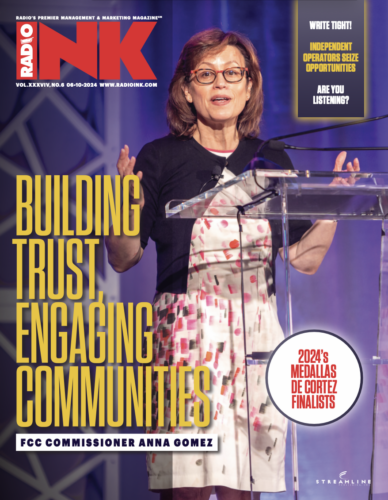
(By Mike McVay) Zach Bryan is one of the most unique and interesting artists that I’ve heard in a long while. His style is reminiscent of some of the amazing storytellers from the 70s. Few pop artists tell stories in their music today. Ed Sheeran, Taylor Swift, and Olivia Rodrigo are a few of those who are excellent at crafting lyrics.
That doesn’t change the fact that the music genre that is best known for storytelling today is Country. That’s probably why Zach Bryan was signed by Warner Records as a Country artist. His lyrics and unique style fit.
Bryan recently went off on social media expressing his displeasure that his song “Pink Skies” is being crossed to the Pop format. His position softened as his fans responded with encouragement to embrace being a multi-format performer. The song’s message, making it a tune that evokes tears and memories of loved ones lost, is universal. That enables it to stretch beyond one format, combined with what could be a generational artist’s skills & talent.
It is counterintuitive to want to have your song exposed to only one part of an audience. Especially when there is a deep blending of music types across multiple music genres. Post Malone and Morgan Wallen have a current song together. Beyoncé and Miley Cyrus have one. This past week Jelly Roll appeared with Eminem on the Peacock TV special for the reopening of Michigan Central train station in Detroit.
A part of the changing times in media, where selection and options are ever increasing in the form of competition, puts in question the way radio stations select music and what songs fit where on what radio stations. Could it be that the streaming services are reeducating an audience on the benefit of a greater variety of music types? Do listeners who go between streaming and OTA radio use the two sources differently? A conundrum.
During a recent visit to the Rock & Roll Hall of Fame and Museum, I saw a quote from Blondie lead singer Deborah Harry who said, “As far as radio goes, categorization of music and airplay is really bad news for the culture.” She was questioning playing only one type of music on a radio station.
She went on to suggest that Rock, Disco, Urban, and Pop could be played on the same radio station, “Because it’s all American music. It’s a little now and a little us.”
When it comes to music, artists don’t always get to pick the radio format that their music appears on. Declaring the genre of a song doesn’t mean that’s how an audience classifies that song. That magnification becomes even bigger when an artist has an image that doesn’t align with the audience’s expectations.
The most successful artists, who because of a career with many hits, usually have a brand that is associated with a format, and as such have a meaningful brand. Their brand means something, and that can be both positive and negative.
Positive in that fans of the artist know who they are and will judge their song with a positive lean because of that fandom. Negative because the song may not align with the artist’s image and that can create a hurdle that has to be jumped to have chart success. One such artist, known as a country artist, but with a low profile outside of the format until his most recent mass appeal hit, is Luke Combs. He’s won just about every award you can win in the country format. He has three Grammy nominations. Combs jumped that hurdle and saw huge multiformat success with the remake of the Tracy Chapman song “Fast Car.”
On the other hand, there is Beyoncé who created a country album with “Texas Hold ‘Em” being her first single released to Country radio. Love that song. The song is one that I immediately added to my Top-40 and Hot AC client radio stations. I suggested that my Country client stations “spike” it on-air and talk about it, but wait to see if it took off. It is a really good song, but it doesn’t sound like a country song. I never saw it test well in research with the Country radio audience. The song became a hit, but not at Country radio.
Radio heard the angst and anger from the record industry as they argued that Queen Bey was being held out of Country Radio. This was especially true when “Texas Hold ‘Em” was the #1 Streaming song in North America. While I encourage the Program Directors I work with to watch the streaming charts; the success of a title on streaming doesn’t make it a format hit. Why? Because the audience that downloads music or streams songs isn’t queried about their #1 music format of choice. On those occasions where you have a release from a megastar like Beyoncé the audience comes from many formats.
Dolly Parton released a Rock album in advance of her being inducted into the Rock and Roll Hall of Fame. That didn’t make Dolly a rock artist in the audience’s mind. She’s definitely a superstar, but she received minimal airplay on Rock radio. The radio audience decides what they like and what they dislike, and ultimately they decide where a song fits in the radio format arena.
Listeners program their own radio station by changing stations on their app, tapping the screen on their car radio, or asking their smart speaker for a different source. Given this use of radio, then it does become important to have format clarity. Not exclusivity, but clarity. Artists can perform across multiple formats, but radio stations need to be known for what they program on-air. When the audience wants to hear what you do, they come to your radio station… if you’re good at what you do.





